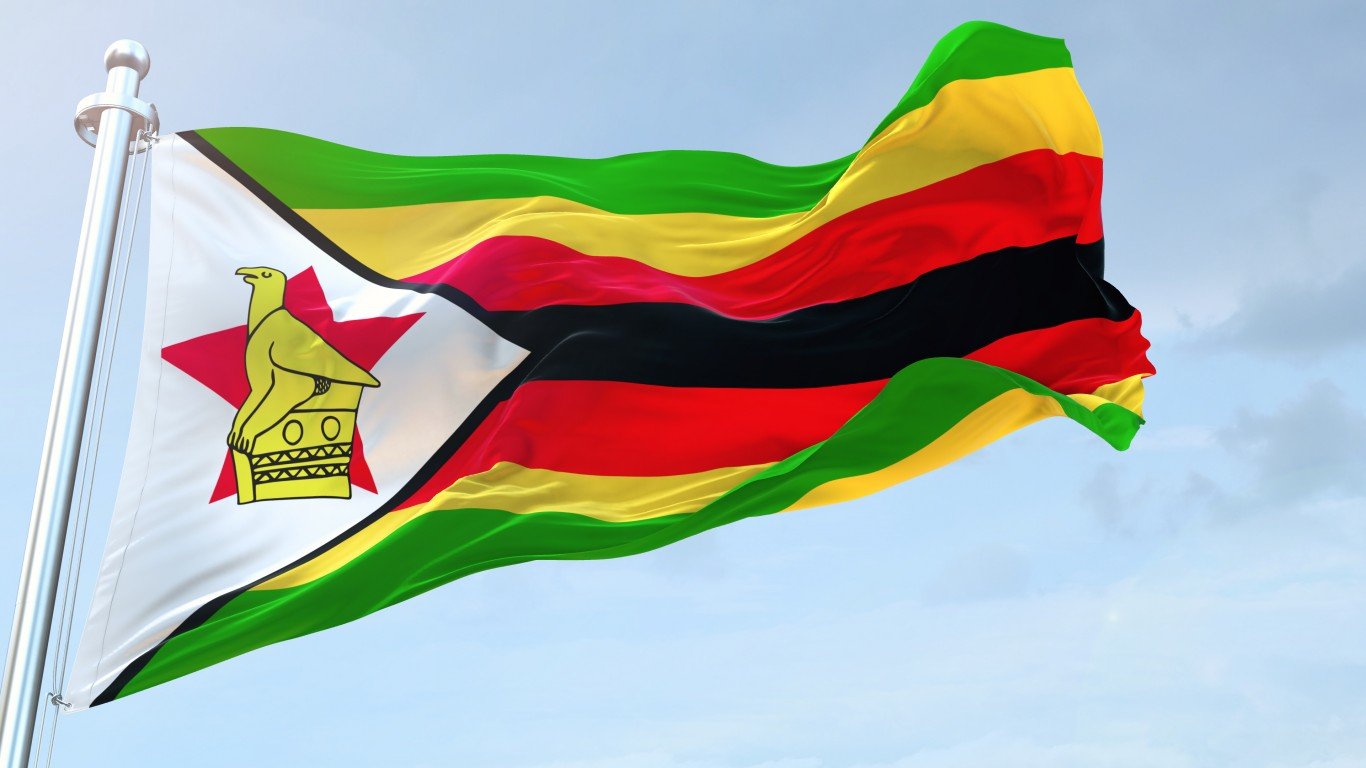

The Reserve Bank of Zimbabwe (RBZ) has invited individuals and financial institutions to subscribe to RBZ GoldBacked Digital Tokens, its gold-backed digital tokens. The move comes as the country aims to counteract its volatile local currency, depreciating at a record level amid yearslong economic woes in the southern African nation.
RBZ to Launch Gold-Backed Digital Tokens
In a notice on Thursday, the RBZ invited applications from individuals and financial institutions to subscribe to its upcoming gold-backed digital tokens. The tokens, issued for investment purposes, will be sold through local and foreign banks at a 20% margin above the interbank mid-rate.
The RBZ Gold-backed Digital Tokens come with a minimum subscription of $10 for individuals and $5,000 for financial institutions and corporates, with a vesting period of 180 days. The country’s central bank said these tokens would be redeemable like the existing physical gold coins.
Furthermore, holders of physical gold coins can exchange them for gold-backed digital tokens, which will be tradable and usable for person-to-person and person-to-business transactions and settlements. The RBZ said:
“The RBZ Gold-backed Digital Tokens are being issued to expand the value-preserving instruments available in the economy, enhance divisibility of the investment instruments and widen their access and usage by the public.”
The central bank said that the pricing of the digital tokens in a foreign currency would remain the same as the pricing model of physical gold coins as guided by the international gold price determined by the London Bullion Market Association’s PM fix.
The RBZ detailed that the digital tokens will be issued in milligrams through custodian banks within the Central Securities Depository (CSD) payment system. “Transfer of the digital tokens will be done through the custodial banks, which will split allotments to its various customers’ accounts,” it added.
The move comes as Zimbabwe seeks to shore up its faltering national currency, the Zimbabwe dollar, which has been losing value at record levels over the past couple of years. By issuing gold-backed digital tokens, the RBZ aims to stabilize currency fluctuations and provide a reliable store of value for investors and the public.
Notably, Zimbabwe is not the first country to issue digital currencies backed by its central bank. The Bahamas, Jamaica, and Nigeria have already launched digital currencies, with several other countries running trial projects, including China, the United Kingdom, the United States, and the European Union.
Zimbabwe Struggles to Tame Soaring Inflation
Zimbabwe is struggling to tame inflation and restore faith in its currency after hyperinflation wiped out people’s savings in 2008, reaching 5 billion percent and resulting in the issuance of a 100 trillion Zimbabwe dollars banknote, according to the International Monetary Fund.
The government temporarily scrapped its currency in 2012, allowing the US dollar to be used as legal tender. In 2019, it reintroduced a Zimbabwean currency and banned foreign currencies to promote local transactions.
However, the local currency quickly lost value, causing the government to relent and again allow the US dollar to be used as legal tender. Inflation in Zimbabwe hit a high of 285% in 2022 and last stood at around 87% in March.
According to WorldData, the country suffered an average inflation rate of 686.4% per year from 1980 to 2021. For perspective, an item that was worth 100 Zimbabwean dollars in 1980 cost 345.81 billion at the beginning of 2022.
This article originally appeared on The Tokenist
Take This Retirement Quiz To Get Matched With An Advisor Now (Sponsored)
Are you ready for retirement? Planning for retirement can be overwhelming, that’s why it could be a good idea to speak to a fiduciary financial advisor about your goals today.
Start by taking this retirement quiz right here from SmartAsset that will match you with up to 3 financial advisors that serve your area and beyond in 5 minutes. Smart Asset is now matching over 50,000 people a month.
Click here now to get started.
Thank you for reading! Have some feedback for us?
Contact the 24/7 Wall St. editorial team.



